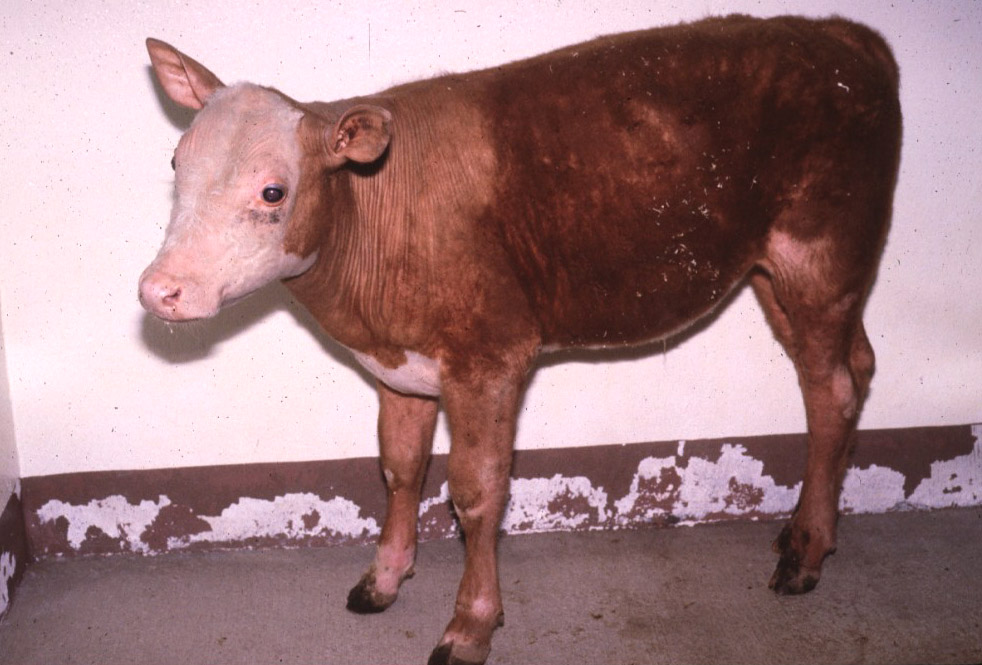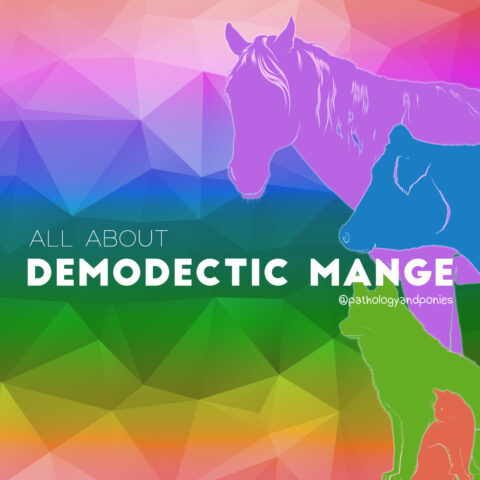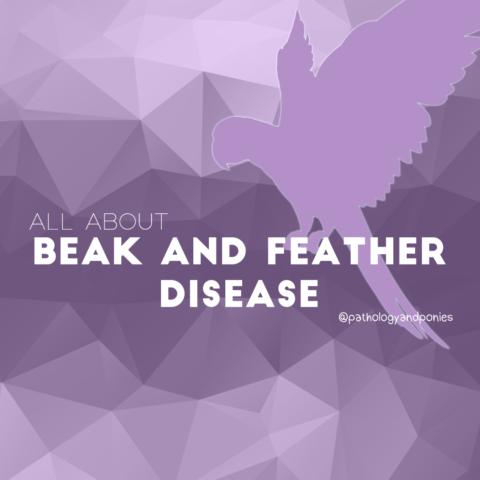




Today’s path rounds are on 𝐡𝐲𝐩𝐨𝐭𝐫𝐢𝐜𝐡𝐨𝐬𝐢𝐬 𝐰𝐢𝐭𝐡 𝐚𝐧𝐨𝐝𝐨𝐧𝐭𝐢𝐚!
𝐖𝐡𝐚𝐭 𝐢𝐬 𝐢𝐭?
𝐇𝐲𝐩𝐨𝐭𝐫𝐢𝐜𝐡𝐨𝐬𝐢𝐬 𝐰𝐢𝐭𝐡 𝐚𝐧𝐨𝐝𝐨𝐧𝐭𝐢𝐚 is a pretty complex name, so lets break it down. 𝐇𝐲𝐩𝐨𝐭𝐫𝐢𝐜𝐡𝐨𝐬𝐢𝐬 means poor development of the hair follicles (hypo- meaning less, and trich- meaning hair), while 𝐚𝐧𝐨𝐝𝐨𝐧𝐭𝐢𝐚 means lack of teeth (an- meaning not, and odont- meaning teeth). So these animals have no teeth and minimal hair!
𝐖𝐡𝐨 𝐠𝐞𝐭𝐬 𝐢𝐭?
While this condition can be seen in many species, we most commonly think of it in cattle.
𝐖𝐡𝐚𝐭 𝐜𝐚𝐮𝐬𝐞𝐬 𝐢𝐭?
In cattle, this disease is 𝐢𝐧𝐡𝐞𝐫𝐢𝐭𝐞𝐝 through the 𝐗 𝐠𝐞𝐧𝐞. Female animals have two X genes in their cells, while males have one X and one Y. Because this condition is 𝐫𝐞𝐜𝐞𝐬𝐬𝐢𝐯𝐞, meaning it only expresses itself if it is the only gene present, male animals more susceptible to the condition. In females, the second X with the “correct” gene may override the affected gene, producing a normal animal. So for a female to be affected, both X genes would have to have the affected gene. Males do not have the benefit of a second X gene in their cells, making them more susceptible.
𝐖𝐡𝐲 𝐢𝐬 𝐭𝐡𝐢𝐬 𝐚 𝐩𝐫𝐨𝐛𝐥𝐞𝐦?
This condition affects the development of the 𝐞𝐜𝐭𝐨𝐝𝐞𝐫𝐦, one of the layers of the embryo, preventing the normal structures that develop from the ectoderm from forming in the developing fetus. This includes the hair follicles, skin glands and teeth! So, these animals are often poorly haired, and have little to no tooth development. Typically horned animals will also not develop their horns.
𝐇𝐨𝐰 𝐢𝐬 𝐢𝐭 𝐝𝐢𝐚𝐠𝐧𝐨𝐬𝐞𝐝?
This is pretty easy to diagnose, just by looking at the animal!
𝐇𝐨𝐰 𝐢𝐬 𝐢𝐭 𝐭𝐫𝐞𝐚𝐭𝐞𝐝?
Unfortunately, there is no treatment for these animals. Because the lack of teeth makes it difficult for them to lead a normal bovine life, these calves are often euthanized.
𝐏𝐡𝐨𝐭𝐨𝐬
1-4) Examples of hairless calves!
5) The mouth of a calf with anodontia, showing little to no tooth development.
𝐒𝐨𝐮𝐫𝐜𝐞𝐬
Zachary JF. Pathologic Basis of Veterinary Disease. Sixth Edition.
Photos 1-5 © Noah’s Arkive contributors Harrington, Nation, Leipold, O’toole, Mosier licensed under CC BY-SA 4.0.




